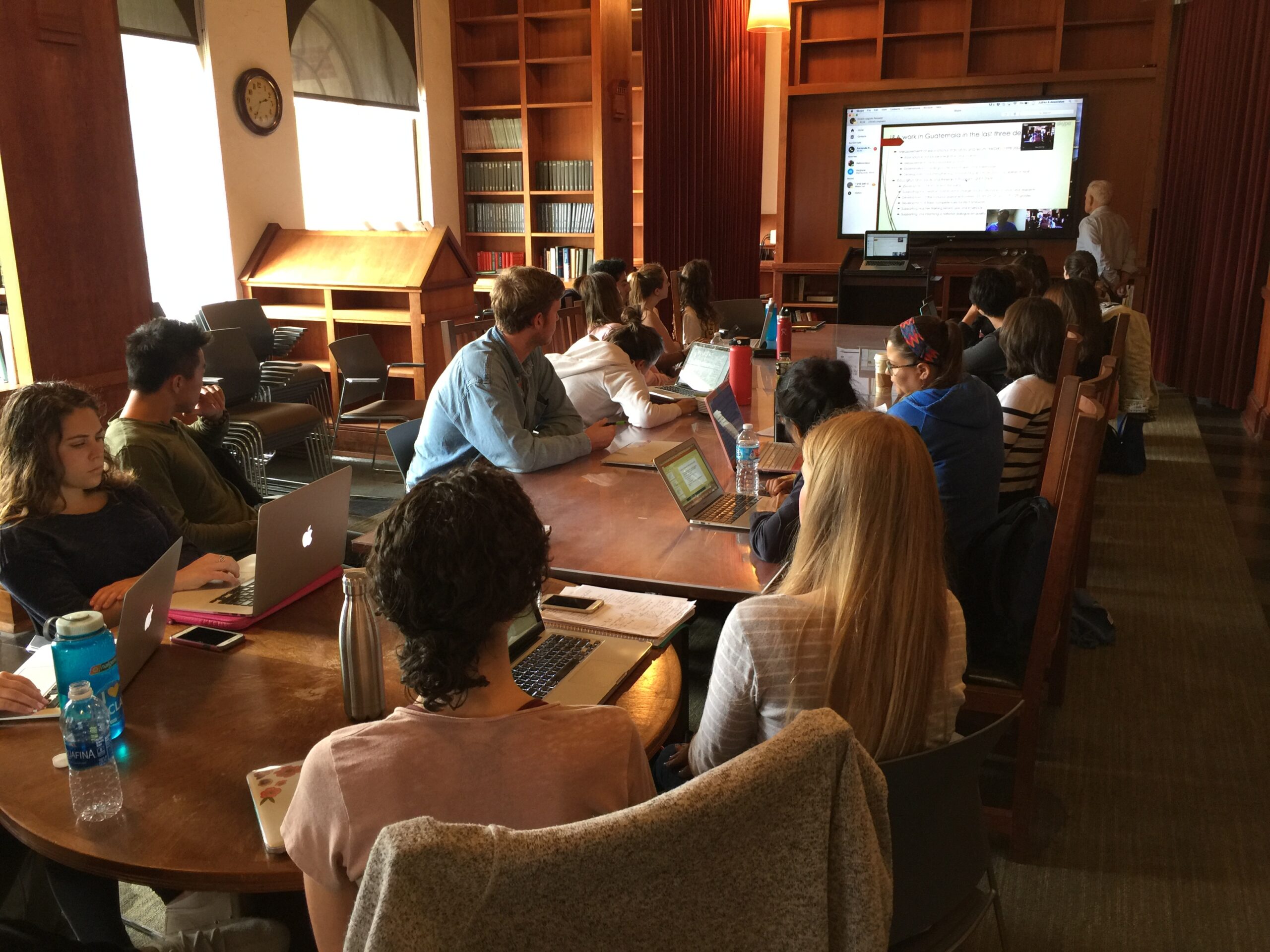In the spring of 2017, Juárez & Associates’ staff and consultants offered an International Development course to select undergraduate UCLA students who were interested in the subject from an interdisciplinary perspective in order to advance sustainable solutions to real world problems of their own choosing. The subject matter of the course addressed such questions as: How does your major relate to one or more of the Sustainable Development Goals? Which goal speaks to your interest? What key concept or passion do you have that can contribute to addressing one or more of the goals? Dr. John McNeil, professor emeritus at UCLA, and Dr. Octavio Pescador of Juárez & Associates devised the curriculum through the UCLA Honors Collegium in the College of Letters and Science, and were the primary instructors.
For purposes of context, the adoption of the United Nations’ Sustainable Development Goals (2015) call for addressing extreme poverty, disease, environmental degradation, gender inequities, unemployment, and other problems afflicting people across the globe. Sustainability entails development solutions that endure and involve local communities, institutions and individuals. The aim is to leverage endogenous capacities to improve living conditions consistently.
Interdisciplinary research has become a trademark of academic excellence in higher education and a predictor of employability for university graduates. Hence, the J&A-led course on the UCLA Westwood Campus offered students an opportunity to apply their respective disciplines’ theories, methodologies and strategies to explore and address development problems. That is, the students could identify how their discipline relates to real world problems, engaging with others in interdisciplinary foci on common problems.
Course objectives:
Students were introduced to two different views of development: altruist-humanistic and authoritarian-materialistic. Proponents of the altruist-humanistic approach hold that donor and multinational organizations invest human and capital resources strictly for humanitarian purposes. Contrarily, analysts espousing the latter perspective argue that global actors utilize foreign aid to advance economic and security interests. Participants examined exemplary humanistic and economic case studies in development, defined their positions on this debate, and developed their final projects/solutions accordingly.
J&A approached the aforementioned debate through three lines of inquiry. First, presenters reviewed the theoretical frameworks underlying international development as an academic field. Next, they examined the US government’s foreign aid apparatus and its relationship with private and nonprofit organizations. Finally, they dialogued with practitioners engaged in research and project development, monitoring and evaluation, program implementation and proposal preparation.
Specific subjects included:
Wednesday, April 5, 2017Sustainable Development Goals
Wednesday, April 12, 2017Movers & Shakers: Conflicting Views
Wednesday, April 19, 2017Growth vs. Equality
Wednesday, April 26, 2017Multinational Global Finance and Trade
Wednesday, May 3, 2017Non-Governmental Aid—philanthropy and charities
Wednesday, May 10, 2017Environmental Degradation and Technological Change
Wednesday, May 17, 2017Educational Opportunity and Gender Equity
Wednesday, May 24, 2017Security and Peacekeeping
Wednesday, May 31, 2017Student Interdisciplinary Proposals (Individual Groups)
Wednesday, June 7, 2017Student Interdisciplinary Proposals
Wednesday, June 14, 2017Final Class Presentation


